Honda Jazz vs Hyundai i20 – erot ja hinnat vertailussa
Vertaa tehoa (122 hv vs 90 hv), tavaratilaa ja hintaa (28100 € vs 22600 € ) yhdellä silmäyksellä. Kumpi auto on sinulle parempi valinta, Honda Jazz vai Hyundai i20?
Kustannukset ja kulutus
Hinta ja tehokkuus ovat usein ensimmäiset valintakriteerit auton ostossa. Tässä näkyy, kumpi malli on pitkällä aikavälillä edullisempi – tankatessa, ladatessa tai hankintahinnassa.
Hyundai i20 on hinnassa erottuva edullisempi – sen lähtöhinta on 22600 € , kun taas Honda Jazz maksaa 28100 € . Ero on noin 5471 €.
Myös polttoaineenkulutuksessa näkyy ero: Honda Jazz kuluttaa 4.50 L ja on siten ilmeinen taloudellisempi kuin Hyundai i20, jonka kulutus on 5.70 L. Ero on noin 1.20 L /100 km.
Moottori ja suorituskyky
Teho, vääntömomentti ja kiihtyvyys ovat autoharrastajien klassisia mittareita – ja erot tulevat tässä hyvin esiin.
Moottoritehossa Honda Jazz on huomattava etulyöntiasemassa – 122 hv verrattuna 90 hv:een. Ero on noin 32 hv hv.
Kiihdytyksessä 0–100 km/h Honda Jazz on huomattava nopeampi – se saavuttaa 100 km/h ajassa 9.40 s, kun taas Hyundai i20 tarvitsee 11.50 s. Ero on noin 2.10 s sekuntia.
Myös vääntömomentissa näkyy ero: Honda Jazz vetää huomattava voimakkaammin, 253 Nm verrattuna 172 Nm:een. Eroa on noin 81 Nm.
Tila ja käytännöllisyys
Tehon ohella arjessa ratkaisevat mukavuus ja käytännöllisyys. Tässä selviää, kumpi auto on monipuolisempi ja tilavampi.
Molemmissa autoissa on tilaa 5 henkilölle.
Omapainossa Hyundai i20 on hieman kevyempi – 1145 kg verrattuna 1302 kg:een. Painoero on noin 157 kg.
Tavaratilan koossa Hyundai i20 tarjoaa pienessä määrin enemmän – 352 L verrattuna 304 L:een. Ero on noin 48 L.
Kantavuudessa Hyundai i20 on jonkin verran parempi – 465 kg verrattuna 388 kg:een. Ero on noin 77 kg.
Kuka voittaa datavertailun?
Honda Jazz voittaa vertailun selvästi objektiivisessa datavertailussa.
Tämä arvio kertoo vain, kumpi malli kerää enemmän pisteitä paperilla – ei kumpi näistä kahdesta autosta tuntuu sinulle oikealta.
Kustannukset ja kulutus
Näytä yksityiskohtainen analyysi
Moottori ja suorituskyky
Näytä yksityiskohtainen analyysi
Mitat ja kori
Näytä yksityiskohtainen analyysi
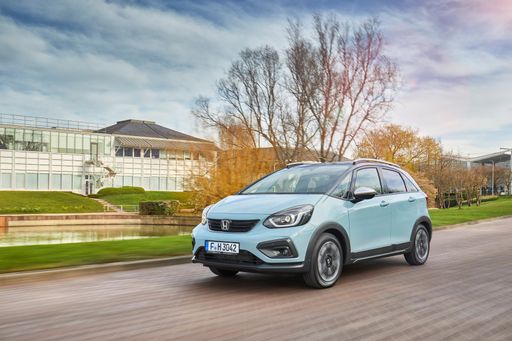
Honda Jazz
Honda Jazz
Honda Jazz on arjen monitoimityökalu, joka yllättää tilan ja mutkattoman käytännöllisyyden yhdistelmällä — auto, joka ei turhia kerskaile mutta toimii joka päivä. Se ei yritä olla sporttinen showstopper, vaan fiksu, luotettava ja hymyilevä kumppani kaupunkiin ja pidemmillekin ajoreissuille.
Tiedot
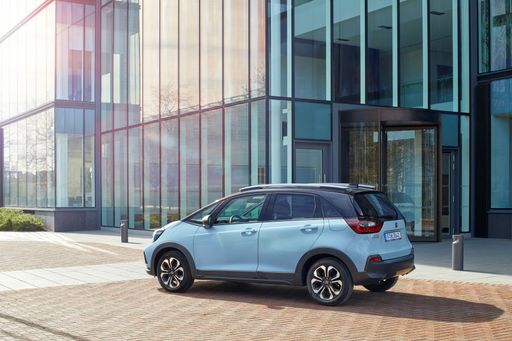
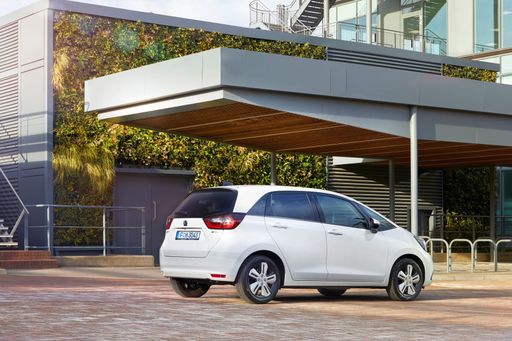
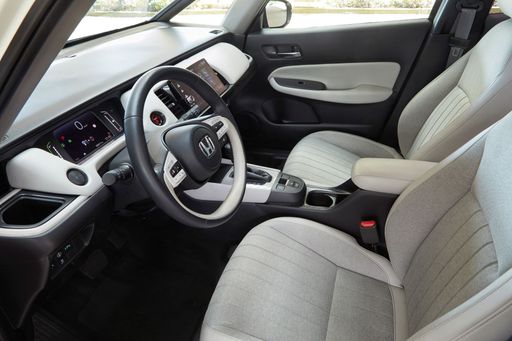
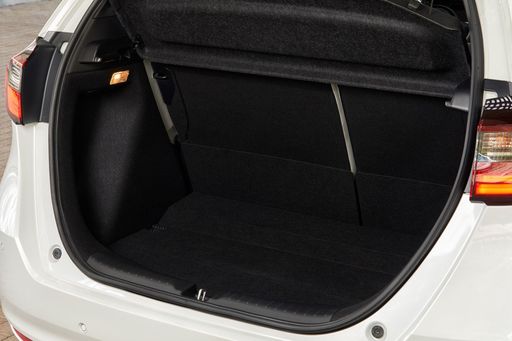
Hyundai i20
Hyundai i20 on fiksusti muotoiltu pikkukaupunkilainen, joka tuntuu huomattavasti viitseliäämmältä ajokumppanilta kuin sen kokoluokka antaa odottaa. Se sopii mainiosti arkeen: käytännöllinen, mukava ja helppo valinta niille, jotka haluavat yksinkertaista luotettavuutta ilman turhaa kikkailua.
Tiedot




Kustannukset ja kulutus |
|
|---|---|
|
Hinta
28100 - 32400 €
|
Hinta
22600 - 29200 €
|
|
Kulutus L/100km
4.5 - 4.8 L
|
Kulutus L/100km
5.70 L
|
|
Kulutus kWh/100km
-
|
Kulutus kWh/100km
-
|
|
Sähköinen toimintasäde
-
|
Sähköinen toimintasäde
-
|
|
Akun kapasiteetti
-
|
Akun kapasiteetti
-
|
|
CO2
102 - 108 g/km
|
CO2
128 - 129 g/km
|
|
Polttoainesäiliön tilavuus
-
|
Polttoainesäiliön tilavuus
-
|
Mitat ja kori |
|
|---|---|
|
Kori
Viistoperä
|
Kori
Viistoperä
|
|
Istuimet
5
|
Istuimet
5
|
|
Ovet
-
|
Ovet
-
|
|
Omamassa
1302 - 1321 kg
|
Omamassa
1145 - 1170 kg
|
|
Tavaratila
304 L
|
Tavaratila
352 L
|
|
Pituus
-
|
Pituus
-
|
|
Leveys
-
|
Leveys
1775 mm
|
|
Korkeus
-
|
Korkeus
-
|
|
Maksimi tavaratila
-
|
Maksimi tavaratila
-
|
|
Kantavuus
369 - 388 kg
|
Kantavuus
455 - 465 kg
|
Moottori ja suorituskyky |
|
|---|---|
|
Moottorityyppi
Täyshybridi
|
Moottorityyppi
Bensiini
|
|
Vaihteisto
Automaatti
|
Vaihteisto
Manuel, Automaatti
|
|
Vaihteiston lisätiedot
CVT-vaihteisto
|
Vaihteiston lisätiedot
Manuaalivaihteisto, Kaksoiskytkin automaatti
|
|
Vetotapa
Etuveto
|
Vetotapa
Etuveto
|
|
Teho hv
122 hv
|
Teho hv
90 hv
|
|
Kiihtyvyys 0-100 km/h
9.4 - 9.7 s
|
Kiihtyvyys 0-100 km/h
11.5 - 12.8 s
|
|
Huippunopeus
-
|
Huippunopeus
-
|
|
Vääntömomentti
253 Nm
|
Vääntömomentti
172 Nm
|
|
Sylinterien lukumäärä
4
|
Sylinterien lukumäärä
3
|
|
Teho kW
90 kW
|
Teho kW
66 kW
|
|
Iskutilavuus
1498 cm3
|
Iskutilavuus
998 cm3
|
Yleistä |
|
|---|---|
|
Mallivuosi
2025
|
Mallivuosi
2025
|
|
CO2-tehokkuusluokka
C
|
CO2-tehokkuusluokka
D
|
|
Merkki
Honda
|
Merkki
Hyundai
|
Onko Honda Jazz saatavana eri vetotavoilla?
Mallia tarjotaan Etuveto-versiona.
